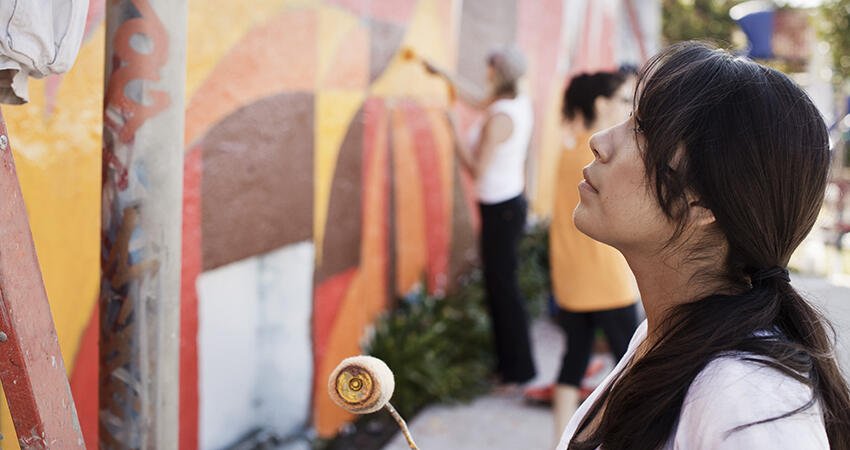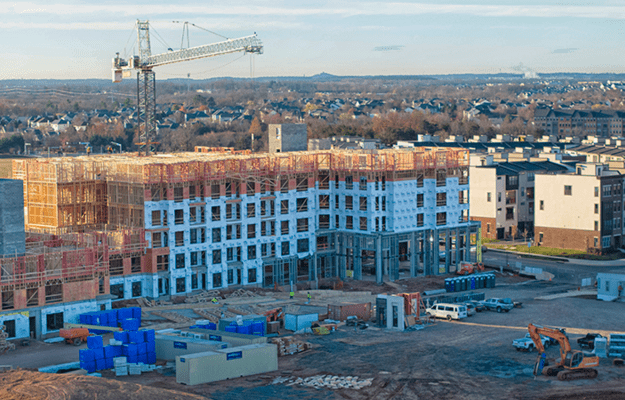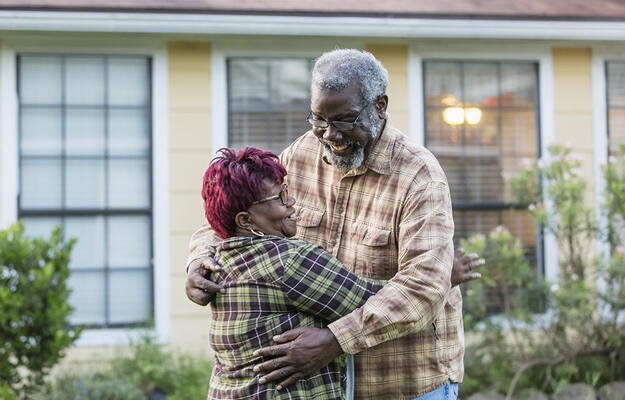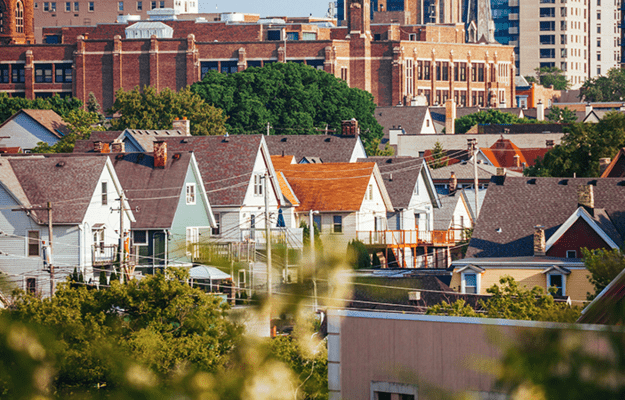
(Hill Street Studios/Getty Images)
How Local Governments Can Advance Equitable Placemaking
This post was originally published on Urban Wire, the blog of the Urban Institute.
The local pocket park, the weekly drum circle, the colorful arts district—cities are often defined by vibrant, shared spaces. While community-based organizations, grassroots nonprofits, artists, and residents often champion these spaces, city and county leaders can also be key advocates.
Planning departments and parks agencies often play an integral role in placemaking—or the collective shaping of the public realm to maximize shared value. More than a tool for urban design and planning, placemaking considers how a new or existing space and its programming will serve the community, whether a citywide recreational path, an events space, or a public art installation (PDF).
Though community participation and input are key components of placemaking, collaborations between government agencies and community groups must be intentional to create spaces accessible to all. By embedding equity into their approach, local government agencies can use placemaking to tackle inequities in their community and create a shared identity among residents.
Fostering equitable placemaking
Local government agencies can have different understandings of what it means to develop and steward community spaces. Although some departments may define placemaking as brick-and-mortar development or urban design, others may consider programming and activities as key to creating shared spaces. Developing a shared language of placemaking across agencies and systems can foster cross-sector collaboration and result in a more holistic approach to placemaking. With a collective understanding of placemaking, agencies that oversee public space, urban planning, community programming, and funding can easily align their efforts and work toward creating meaningful community spaces.
Cultivating a shared understanding of equity can also help governments ensure they’re engaging residents intentionally and equitably. Working across agencies, localities can assess: Where are placemaking projects located? Which communities have or haven’t been engaged during the planning process? Will the project reinforce or break down inequities? By developing shared placemaking and equity goals, local governments can ensure their approach to placemaking is equitable in both its process and results (PDF).
Here, we lift two cities that are advancing equitable placemaking in their communities—Akron, Ohio, and Huntsville, Alabama—and the strategies they used.
- Akron, Ohio, uses placemaking to promote the arts and connect neighborhoods
In January 2019, the city of Akron partnered with a nonprofit arts organization to launch a cultural planning process with the goal of elevating the arts in their community. As part of the process, they solicited input from residents of each neighborhood, created a steering committee of government and community representatives, and took inventory of resources. In the final plan, “utilizing art as a placemaking tool” is listed as one of the city’s main priorities.
To achieve this goal, the city and its partners planned to create a Cultural Tourism Task Force to promote performances in public spaces and creative gardening. The city government has also partnered with the Akron Civic Commons to help fund and plan the restoration of historic sites, develop recreational spaces, invest in community gardens, and connect economically diverse neighborhoods. These efforts make up a larger revitalization effort to transform public spaces in Akron (PDF) and foster community collaboration and trust by prioritizing community voices in project scoping and programming. Placemaking efforts are now facilitated by Akron’s Office of Integrated Development, which was created to house placemaking projects.
- Huntsville, Alabama, uses sound to connect people to place
In 2018, the city of Huntsville launched a placemaking project to establish itself as Alabama’s first “music city”—or a city that embraces music as a part of its identity and as a tool for economic development. In partnership with consultant group Sound Diplomacy, Huntsville’s city council conducted a music audit to understand the current music ecosystem and how to leverage music to drive socioeconomic benefits for residents, such as increasing employment opportunities and compensation for local artists and other workers. They then created a plan to spearhead five music-related efforts, including expanding city library music programs, creating or renovating music venues, and strengthening music leadership within the government. This work is shared among several city agencies, including Huntsville’s zoning enforcement office and the newly created music office. As a result of these citywide efforts, Huntsville will host the 2023 Music Cities Convention.
For other local governments seeking to advance equitable placemaking, these examples offer insights into potential strategies and best practices.


